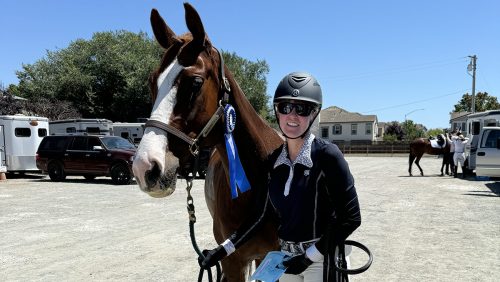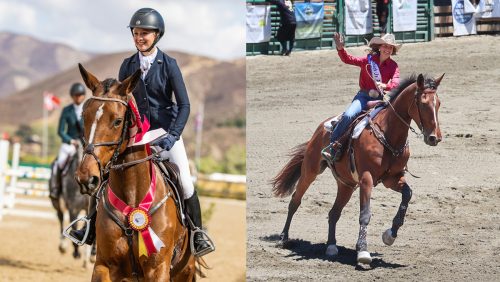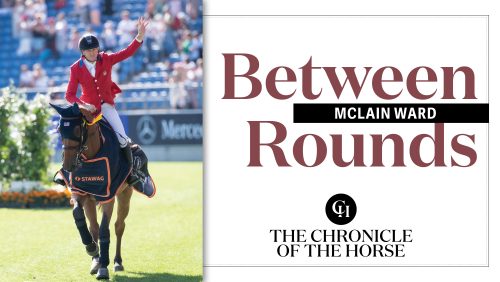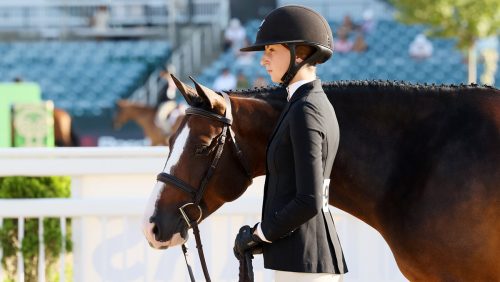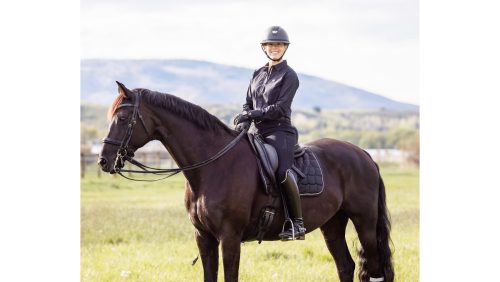On June 1, the U.S. Equestrian Federation’s Minor Athlete Abuse Prevention policies went into effect. These policies apply to USEF members who are 18 years old and older (regardless of their USEF age), referred to as “adults” below. As members work to change their behaviors to further support and protect minor athletes (anyone under 18 years of age regardless of USEF age), in our sport, the following are five fast facts you need to know about the mandatory requirements outlined in the new USEF MAAP Policies:
1. While at USEF-sanctioned events, adults’ one-on-one interactions with minors must be observable and interruptible.
In the event an adult and minor need to hold an individual training session that is not observable and interruptible at a USEF-sanctioned event, the adult must obtain written consent from a legal guardian. This consent should be updated every six months. USEF has provided sample consent language that can be used as an informational resource.
“Observable and interruptible” means that the interaction is not occurring in a private place and someone else can observe and interrupt the one-on-one interaction at any time. Fortunately for equestrian sports, much of our activity at USEF-sanctioned events occurs in the arena or barn areas that are observable and interruptible. Do not engage in one-on-one interactions at USEF-sanctioned events that don’t meet this standard, such as private, one-on-one conversations in an enclosed tack room with no visibility from the outside.
2. Adults must include another adult on all electronic communications (phone calls, texts, emails, social media messaging, etc.) with a minor. This requirement applies at all times, whether at a USEF-sanctioned event or at home.
ADVERTISEMENT
The additional party on electronic communications must be an adult (for example, assistant trainer, parent, groom, or rider who is 18 years old or older). While adding an adult to a text message group or CCing them on an email might seem an obvious way to provide the right level of transparency with electronic communications, you must ensure your one-on-one phone calls with minors occur in an environment where you could be overheard. If appropriate for the conversation and location, you might also consider using speaker phone with another adult present or add another adult caller to the line.
3. Adults and minors can continue to friend or follow each other on social media platforms. They can continue to interact with each other’s posts that are visible to other users of the platform. However, adults cannot maintain private messages with minors on social media or through any electronic communications, unless another adult is included on the communication.
For example, adults may comment on a minor’s post, but they should not contact that minor through a direct message to carry on a one-on-one conversation. On Facebook, adults can consider creating a group on Messenger as a way to include another adult in a message through this platform. If you run a page or an account for your business, consider providing additional administrative rights to another adult who can act as a second party to any direct conversations between a business social media account and a minor. Again, this effort is about making communication between adults and minors more transparent. In doing so, we create a culture that leaves nowhere for predators to hide.
4. Adults may travel with a minor as long as another adult or two other minors are in the vehicle as well. Adults must obtain written consent from a legal guardian before traveling with a minor alone.
Equestrian sport requires regular travel, and we want minors to be able to train and compete where they will thrive. Ensuring legal guardians are informed and approve of the travel arrangements in advance helps to protect athletes and opens a dialogue between legal guardians and minors that is important to preventing abuse. Refer to USEF’s sample consent language that includes a section for local travel.
ADVERTISEMENT
5. Working students or barn workers under 18 years of age who travel or live with a trainer must have documented legal guardian consent to do so.
Being a working student in our sport is a valuable way to advance and gain wonderful knowledge from talented professionals. Ensuring working students are safe as they pursue these opportunities is essential. Professionals who hire working students will need to ensure they are following the USEF MAAP policies to keep the minors working with them safe. USEF has created sample informed consent language that can be used by trainers and professionals and their attorneys as a reference for crafting informed consent forms tailored for the working student environment.
While these five fast facts provide a snapshot of some of the policies and how they can be applied to help protect minor athletes in our sport, it is important to review the comprehensive policies, which include both mandatory requirements and recommended best practices that aim to protect minors in equestrian sport from abuse. View the updated USEF Safe Sport Policy and MAAP Policies here.
USEF has created a variety of resources to help members maintain a culture that does not tolerate abuse:






